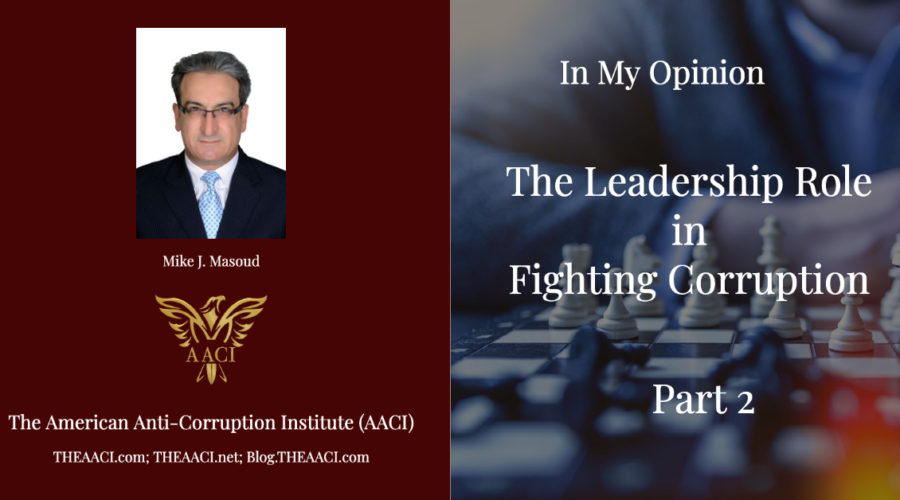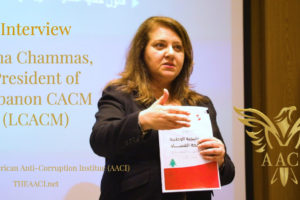Mike Masoud
December 24, 2021
A leader communicates successfully with stakeholders by using the word “we” rather than “I.” He accepts responsibility for his judgments and holds himself accountable for the outcomes of his decisions.
The effective leader engages everyone involved in discouraging, preventing, and detecting fraud and corruption to accomplish tangible outcomes. He encourages his subordinates, employees, vendors, and anyone to talk to him about any suspected or actual fraud in his organization. He invests in the anti-corruption knowledge and skills of his executive leadership and oversees the design and implementation of the organization’s communication strategy with stakeholders to engage them in fighting corruption. But leaders make good and bad decisions.
A leader takes full responsibility for his judgments and accepts complete accountability. As a result, only a dictator rejects accountability and responsibility. When a leader takes full ownership of his results transparently, he supports the local environment to fight corruption effectively. The effective leader should ensure that the organization’s culture encourages employees to accept and learn from failure in fighting corruption – it should not be dominated by fears of failure.
The Ten Principles of Fighting Corruption
Effective leadership should adopt the Ten Principles of Fighting Corruption promulgated by The American Anti-Corruption Institute (AACI). They are the frame of reference to assess and evaluate the effectiveness of anti-corruption strategies, plans, and policies.

Leadership Failure
Genuine leaders who fail to achieve adequate anti-corruption outcomes take full responsibility and step down. Corrupt leaders do not. They are private profiteers who misuse entrusted power. They are willing to sell their power and influence. They are heads of nations, organizations, and a variety of other positions.
Note: Read Part 1 at https://blog.theaaci.com/the-leadership-role-in-fighting-corruption-part-1/











































